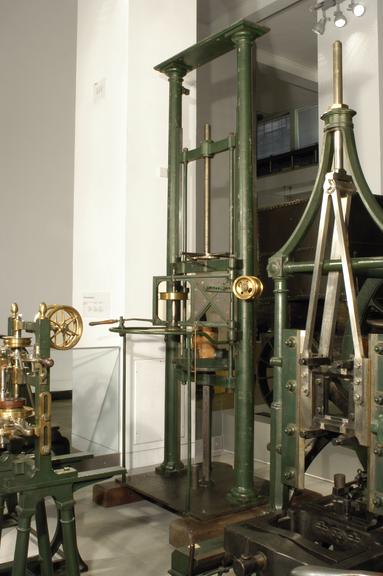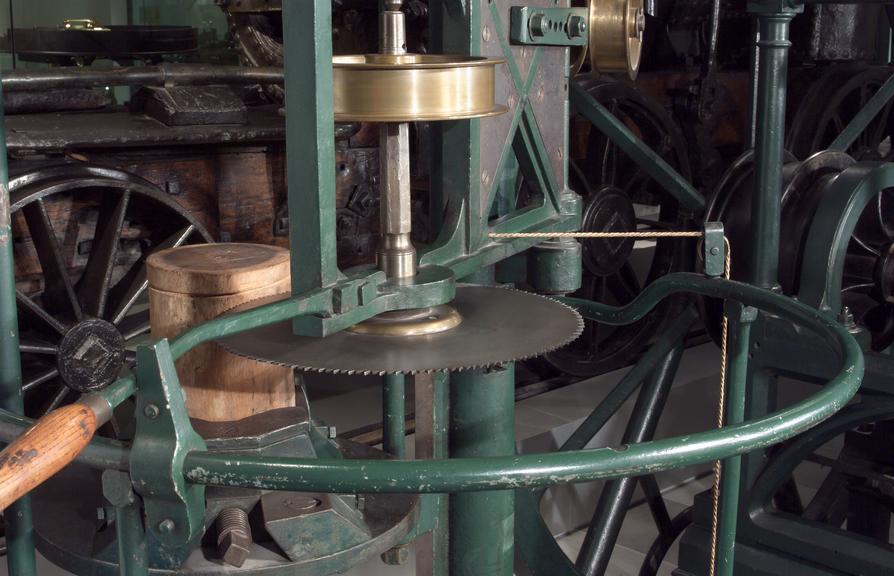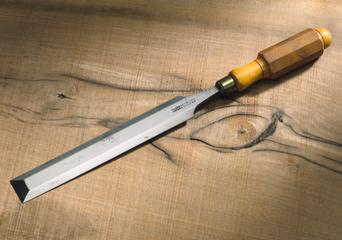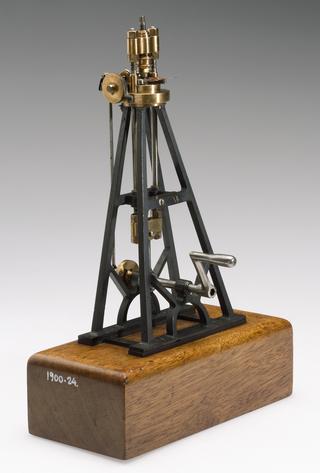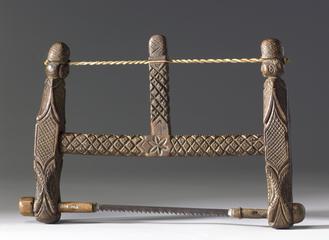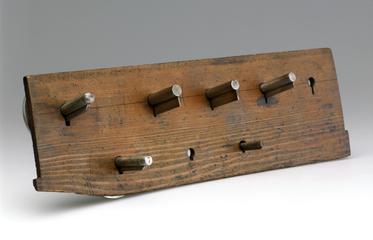Lignum Vitae Saw
Lignum Vitae saw, yard No. 647, built by Henry Maudslay for the Block Mills, Portsmouth Naval Dockyard, 1804-1807.
More
These machines, designed by Marc Isambard Brunel to make pulley blocks for the Royal Navy; are the first purpose designed and integrated system for quantity production in the world.
British power in the eighteenth century relied on the sailing ships of the Royal Navy. A single fighting ship such as Nelson's Victory needed over a thousand pulley blocks and, during the Napoleonic Wars, the Navy purchased about 100,000 a year. The pulley block was a natural subject for the early application of mass production.
Machines for cutting and shaping wood were not new, but the core idea behind Brunel's system was to design a suite of machines in which each did a particular job in sequence and the workpieces were passed from one machine to the next.
This idea of rational manufacture fitted in well with eighteenth century Enlightenment ideals. Brunel's system was adopted for the Navy by Sir Samuel Bentham, the brother of Jeremy Bentham, the Utilitarian philosopher.
The machines continued to be used for well over a hundred years. Perhaps the greatest puzzle behind the feat is why the system remained a notable and highly regarded 'one off', but did not lead to similar techniques in other industries. In spite of its success British manufacturers and government largely ignored the principles it established until they awoke to the power of 'the American system of manufacture' over fifty years later.


